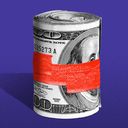How institutions that control vast wealth fall through U.S. regulatory cracks

Financial regulation is not exactly simple anywhere in the world. But one country stands out for the sheer amount of complexity and confusion in its regulatory regime — the U.S.
Why it matters: Important companies fall through the cracks, largely unregulated, while others contend with a vast array of regulatory bodies, none of which are remotely predictable.
Driving the news: Pick a recent headline and it's easy to see how valued — and how obvious — the lack of regulation is in financial markets.
- Financial data powerhouse S&P Global is buying rival IHS Markit for $44 billion, even as the London Stock exchange looks like it has received EU approval to buy another huge data provider, Refinitiv, for $27 billion. (The giant in the space, Bloomberg, is worth north of $60 billion.) Such companies are integral to the functioning of financial markets, but, antitrust concerns aside, their operations are largely opaque to regulators.
- S&P Global will also precipitate a massive $100 billion flow out of existing S&P 500 stocks and into Tesla on Dec. 21, when the index giant will finally allow the electric carmaker to join its benchmark index. That's hardly a sign of an efficient market, but regulators have no ability to intervene.
- The Nasdaq stock exchange announced that it wants to delist companies that don't start nominating a diverse slate of directors — something that roughly 75% of those companies don't want to do, according to what Nasdaq itself says is their revealed preference. That power — to possibly reshape the governance of thousands of companies — is being wielded not by any regulator or legislator, but by a privately-owned company. (Admittedly, the SEC does first need to sign off on the plan.)
How it works: Institutions and individuals that control vast wealth — foundations, endowments, billionaires — are almost entirely unregulated. The asset managers who help to invest that wealth are also largely unregulated.
- Insurance companies are regulated, but only by a patchwork quilt of state regulators. No federal regulator has oversight or control over the industry.
- The places that the investments are actually held — the so-called custodians — are regulated, which is one reason why investment managers invariably outsource that part of their business.
- The exchanges where the investments are traded tend to avoid close regulation, to the detriment of systemic stability. The "shadow banks" that normally keep those exchanges liquid — except during times of stress — are less regulated still.
- Ratings agencies, proxy advisors, information providers, and other companies providing crucial grease for the wheels of finance — they're largely unregulated too.
What to watch: There's talk that the Biden administration will be much more aggressive about regulating hedge funds than any of its Democratic or Republican predecessors.
- Biden's presumptive pick as head of the National Economic Council, however, Brian Deese, would be arriving at the White House via the revolving door from BlackRock. The $7 trillion investment giant has relationships with hundreds of regulators around the world, but no one regulator is charged with looking at it as a single global systemically-important entity.
Of note: JPMorgan's fiduciary arm was recently hit with a $250 million fine by the OCC, one of America's bank regulators. Other major fiduciaries include giant nonbanks like Vanguard, Fidelity, and BlackRock, none of which ever have ever faced a fine remotely as large.
The bottom line: The U.S. would benefit greatly from having a single powerful financial regulator operating a principles-based regime that would encompass all financial institutions. Even many of the institutions would welcome such a thing. The problem is that the existing interests are too entrenched for that to ever happen.